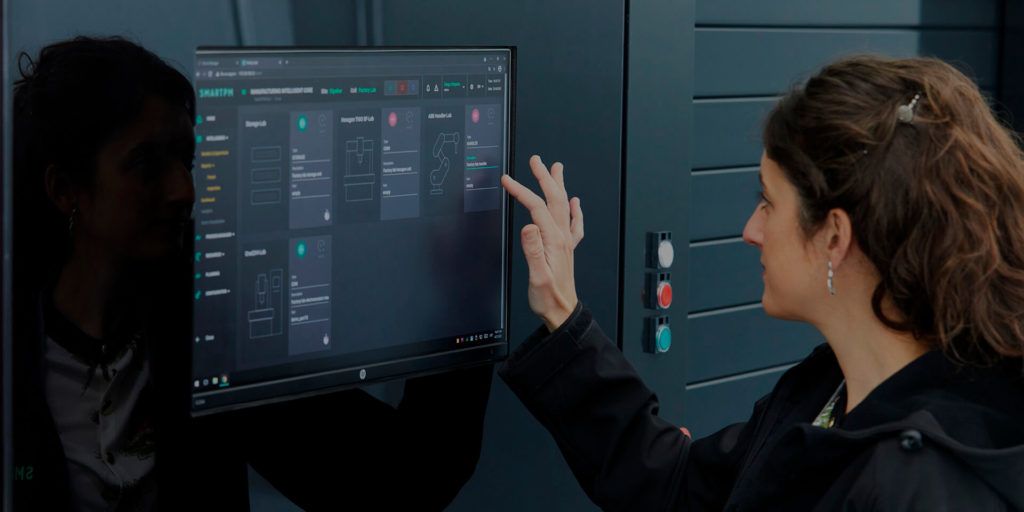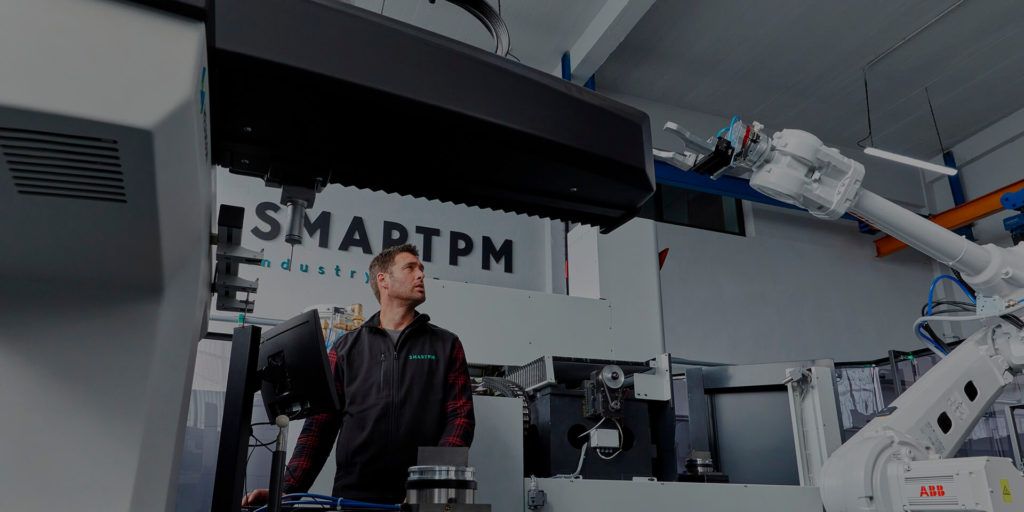The fourth industrial revolution (or Industry 4.0) is here. The promise it brings with it is at the very least appetizing: greater flexibility and efficiency in industry, more connectivity and better economic results. It is too sweet to pass up, but are we really ready to take on the changes required by this new industry?

The challenge facing the industry
The reality is that the Industry 4.0 candy comes with a wrapper that will not be easy to open for all companies. Yes, the opportunities are there, but for change to occur, it is necessary to start from a solid base: robust processes, IT infrastructure aligned with operations (IT-OT), technological maturity, strategic digitization objectives, personnel capacity, etc.
In addition, a characteristic of this new industrial revolution is that it is produced by the convergence of different technologies that create synergies between them, such as automation and virtualization of processes, improved connectivity (thanks to 5G and IoT), cloud and edge computing, Artificial Intelligence (AI), etc.
The technology options are so broad that it will be necessary to analyze the state of each company and study where and how to invest to obtain the greatest benefits. There is no single technological solution for the industry. Investing in and developing the right technologies will revolutionize organizations at both the strategic and operational levels.
Industries that integrate the right technologies first will gain an advantage over their competitors that will be difficult to cut.
This is the first challenge to overcome: making the right choice of technologies. Industries that integrate the right technologies first will gain an advantage over their competitors that will be difficult to cut. But investing late or poorly (not in the key technologies) can mean being left behind in this new industrial revolution. Therefore, many companies will have to ask themselves to what extent a certain technology is important for their company, or which specific technology options are the most important to improve their competitiveness.
The next step is no easier: how to integrate these technologies? Not all companies are prepared to carry out this process on their own. Therefore, it is essential to have a partner specialized in technology and knowledge of the needs of the sector and its industrial processes. In this way, it will be possible to implement the most suitable technological solution, integrating both the IT and operations layers.
From the present to the future of the industry
The goal we want to reach is clear: a more productive and higher quality industry, with information from every stage of production in real time, more flexible, connected and optimized. What not everyone is talking about is how to get there.
Digitization is not something that can be achieved by working only in the engineering area. It must take into account different areas of the business.
All revolutions bring great benefits, but also risks. Successfully making the leap to Industry 4.0 will require a high level of coordination at the strategic and operational levels. Implementing partial improvements in activities or not using the right tools can lead to failure.
Therefore, preparing for this leap is a responsibility for all organizations that want to be at the forefront in the coming years.

Steps to be taken to move towards the industry of the future
Digitization is a process that must be approached holistically, taking into account different areas of the business: product, supply chain, corporate culture, etc. In other words, it is not something that can be achieved simply by hiring an executive with IT experience or working only in the engineering area.
To put the organization on a good starting point towards this transformation there are some steps that should be taken as soon as possible:
- Analyze the problems: an internal study to identify, analyze and prioritize them is the basic starting point for any company.
- Identify which technologies can help you solve your problems: artificial intelligence, machine learning, process virtualization, IIoT... How do each of these technologies affect you? How do your competitors use them? What do your customers demand?
- Improve IT and OT integration: IT and OT are inseparable concepts in the Smart industry. While the IT layer is usually more developed, the pace of digitalization of OT is usually slower. The more integrated and aligned these fields are, the more prepared your company will be for Industry 4.0.
- Promote cultural change in your organization: new technologies will need people with new skills and knowledge. This includes CEOs and business managers, who will even have to think about ideas they had never thought of before (such as their main strategies or even business models) in order to discover the lines of investment with the greatest potential for their organization.
- Be aware of the great opportunity you have in front of you, but do not forget that this change requires a commitment at many levels within your organization.
- Forget piecemeal approaches: achieving great results will come from implementing change at all levels, both operational and strategic. Initiatives at the local or sub-function level will not achieve the desired change.
Technology as a workhorse
In recent years we have learned (the hard way) the consequences for the industry of not being agile and flexible enough to deal with change. The COVID pandemic has hit hard when many companies were still recovering from the past economic crisis.
Being more agile and flexible at the operational level seems to be a good strategy to face an uncertain future. We will achieve this by investing in digitalization and taking our industries to the 4.0 level we are talking about.
Therefore, we must understand that digitalization is not an end in itself. The tools we have at our disposal are a means to reach new levels of productivity in a safer and more competitive way and, as a consequence, to obtain greater profitability. It is important not to lose sight of this end in order to avoid being shipwrecked in this new sea of technologies.
The time for change is now
It will not be a one-time train, but we can be sure that those who get on first will go the furthest. It is time to be ambitious, because as we have seen, this new industrial revolution requires courage and change from the highest levels of organizations.
Digitalization is not a one-time train. But those who get on first will go the furthest.
Industry 4.0 transformation is already underway and it will happen whether you take part in it or not, it is inevitable. If you do not want to miss this train you need to get organized, draw a plan and if necessary look for partners to help you meet your goals.
There is work to be done, but the effort will be worth it. Not all organizations start from the same point of technological maturity and means, but there is something they all need: the vocation to integrate digital and analog (IT and OT) and bet on change.
At SMARTPM we are very aware of how complicated this process can be for some companies. That is why we are committed to an intelligent automation process adapted to each case and always focused on improving quality, productivity and adaptability in an increasingly changing environment.
New technologies are here to change the way we do things. If you would like to talk to us about how we can help you, don't hesitate to contact us.
